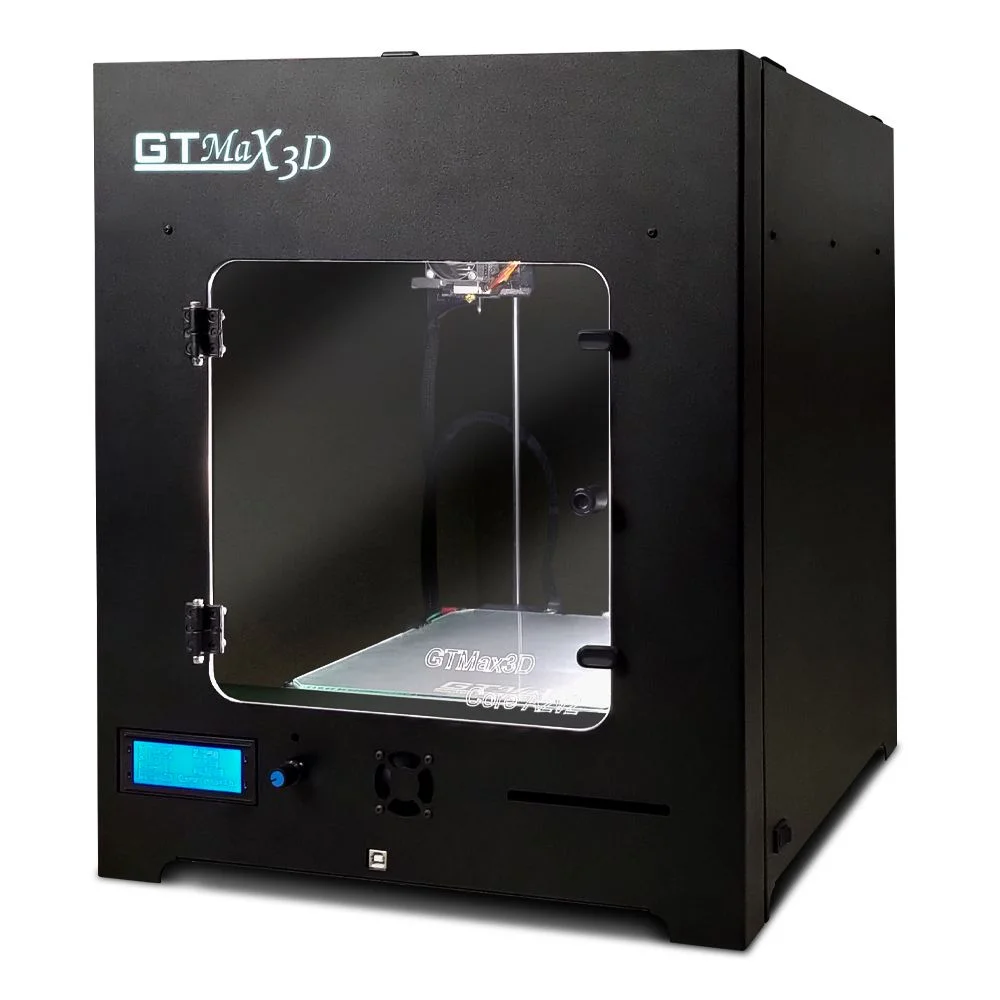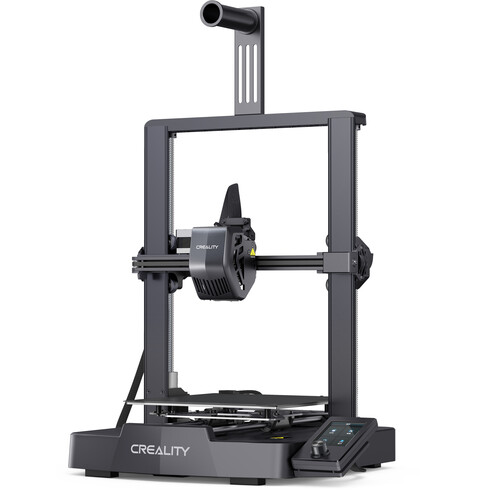Compare Core A2V2 vs Ender 3 V3 SE
Comparison between the best 3D printers
Choose the best 3D printer at the best price. The cheapest 3D printers are here.
Buy a 3D printer here with 3D Fila.
 |
 |
|
| Model | Core A2V2 |
Ender 3 V3 SE[BUY Ender 3 V3 SE] |
| Printing Material | Filament | Filament |
| Buy Filament for GTMax Core A2V2 | Buy Filament forCreality Ender 3 V3 SE | |
| Estimated price | $684,00 | $199,00 |
| Manufacturer | GTMax | Creality |
| Release Year | 2019 | 2023 |
| Print Volume [mm] | 220x220x240 | 220x220x250 |
| Printer Size [mm] | 425x460x512 | 420x366x490 |
| Weight [kg] | 7,34 | |
| Power Loss Recovery | YES | NO |
| Enclosed printer | YES | NO |
| Bed Leveling | Automatic | |
| Filament End Sensor | YES | NO |
| Bed type | Heated | Heated |
| Power supply system | Bowden | Direct Drive |
| Standard nozzle | 0,4 | 0,4 |
| Maximum Nozzle Temperature [°C] | 295 | 260 |
| Maximum Bed Temperature [°C] | 135 | 100 |
| Maximum printing speed [mm/s] | 150 | 250 |
| Filament holder | YES | YES |
| Camera for supervision | NO | NO |
| Recommended filaments | PLA, PETG, Tritan, Flex, ABS | PLA, PETG e TPU (95A+) |
| Recommended slicers | Cura, Simplify, Slic3r, IdeaMaker | Creality Print, Cura 5.0 ou superior, Prusa Slicer, Orca |
| Maximum Resolution [mm] | 0,05 | 0,1 |
| Processor | 32-bit Silenciosa | |
| Display | Mono | 3,2'' + Knob |
| Power Supply | 350 W | |
| Connectivity | SD / USB | SD |
| Operating systems | Windows, Mac, Linux | Windows, Linux, Macbook |
| Date of registration in the system | 2022-11-12 | 2024-03-06 |
| Release date | 2019 | 2023 |
| Extra features | The GTMax3D ProCore A2v2 is a compact and robust 3D printer with a printing area of ??220 x 220 x 240 mm. It offers high print quality, ranging from 0.05 mm to 0.32 mm. Its features include automatic filament detection and changing, travel speed of up to 300 mm/s, and a heated aluminum bed with a glass top. It has automatic bed leveling with 16 points and an all-metal hotend that reaches up to 298°C. The printer has a carbon steel frame with electrostatic painting, is automatic bivolt and has connectivity via USB and SD card. The Bowden system and core xy kinematics complete its advanced features. | The Ender 3 V3 SE stands out for its easy assembly, excellent automatic bed leveling, direct extrusion and easy interface, ideal for beginners. Although it uses a coated PC board, it offers robust performance, with print speeds of up to 250mm/s, thanks to a solid construction and linear rods on the Y axis. It lacks Wi-Fi, preferring file transfer via SD card. |
| Support for multiple colors and materials (AMS and CFS) | NO | NO |
Notes * |
||
| Cost-benefit | 6 / 10 | 7 / 10 |
| Hardware | 2.5 / 10 | 0.8 / 10 |
| Tela | . | . |
| Print volume | 3 / 10 | 3 / 10 |
| Performance | 1 / 10 | 2 / 10 |
| [BUY Ender 3 V3 SE] |
Conclusion |
| In comparing the GTMax Core A2V2 and the Creality Ender 3 V3 SE, several factors highlight the strengths and weaknesses of each printer, catering to different user needs and budgets. The Core A2V2, with its robust build and advanced features like automatic bed leveling and a high maximum nozzle temperature, is designed for users who prioritize precision and versatility in their 3D printing projects. Its enclosed structure makes it suitable for a wide range of filaments, including more sensitive materials, and its automatic filament detection enhances user convenience. However, it comes at a significantly higher price point and may be considered overkill for those just starting in 3D printing. On the other hand, the Ender 3 V3 SE is a more budget-friendly option that excels in user-friendliness and ease of assembly, making it an excellent choice for beginners or those looking for a reliable printer without breaking the bank. Although it lacks features like power loss recovery and an enclosed design, it compensates with solid performance and a larger print volume. Its capacity for direct extrusion is particularly beneficial for flexible filaments, adding to its versatility while still being accessible to newcomers. In conclusion, the choice between these two printers ultimately depends on the user's needs and experience level. The Core A2V2 is ideal for experienced users seeking advanced features and high precision, while the Ender 3 V3 SE offers a more economical, straightforward experience perfect for beginners. Each has its own advantages, and the best choice will align with the user's specific printing goals and budget constraints. |

